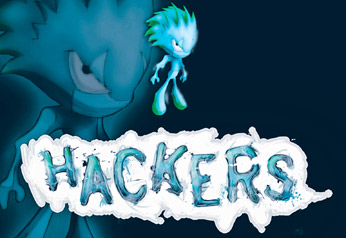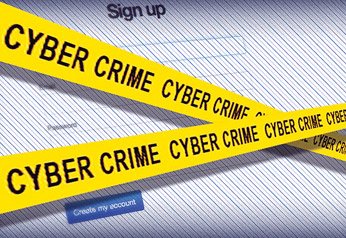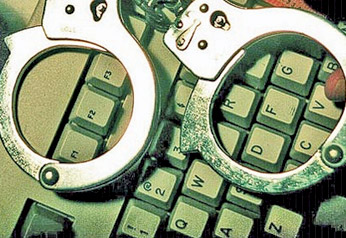|
Heavy protection system vital:
Cyber crimes hit new high
by Kurulu Koojana Kariyakarawana
 Sri Lanka has experienced crime throughout history from assault to
murder, theft, robbery, physical abuse, smuggling and swindling as well
as organised crime. Law enforcing authorities like the police have
mastered these crimes and are well-organised, compared to many other
countries in the region. They can face and solve these crimes and to
bring the culprits to book because of the battle hardened experience
they received during the past three decades. However, with the
advancement of technology, crimes have also taken a twist posing a new
challenge to the authorities responsible for maintaining law and order. Sri Lanka has experienced crime throughout history from assault to
murder, theft, robbery, physical abuse, smuggling and swindling as well
as organised crime. Law enforcing authorities like the police have
mastered these crimes and are well-organised, compared to many other
countries in the region. They can face and solve these crimes and to
bring the culprits to book because of the battle hardened experience
they received during the past three decades. However, with the
advancement of technology, crimes have also taken a twist posing a new
challenge to the authorities responsible for maintaining law and order.
Cyber crime or crimes committed using computers or through the
internet or related to Information Technology may have been something
novel and distant to many of us to date except to a few professionals in
the field.
Hacking a computer or a network or in other words illegally entering
a restricted computerised database, a website or a shared computer
system of a state or private organisation with malicious intent maybe
new to us although it has been happening in developed parts of the
globe.
Many of us have seen modern films based on how people commit crimes
or offensive activity through the internet. An experienced computer
genius with a simple laptop operating from a hideout of one corner of
the world can gain access to a highly secured sophisticated data network
of a renowned espionage service in one of the super powers or somebody
good at numbers and figures can enter into a multi-billion dollar bank
account of a rich tycoon and drain the funds to a secret account in a
manner of stealing or perhaps one state trying to deactivate
sophisticated military armaments and nuclear missile system of a rival
state were some of the hot themes on which movies are being produced
these days.
 One would think whether this really happens across the world today or
whether films are just made out of fictional themes. Sadly the answer to
this is in thec affirmative. Such things do really happen in the world
today and the victims will not only be the developed western countries. One would think whether this really happens across the world today or
whether films are just made out of fictional themes. Sadly the answer to
this is in thec affirmative. Such things do really happen in the world
today and the victims will not only be the developed western countries.
Experts in the field of Information Technology have forecasted that
even developing countries in the Asian region could be victimised by
these hackers or cyber crimes in the future.
It is a simple task nowadays for an IT literate person to send a
malicious software in the form of a virus to a leading a company and
cripple its entire data sharing system for hours, which could result in
losing millions of rupees of funds or assets.
The law enforcing experts have found that cyber crimes were becoming
the gravest crimes of all time. It is proved that the most powerful
person in todayís world is not the richest country or the country armed
with weapons.
An IT wizard with exemplary skill and ambition could be far more
dangerous than any other terrorist in the world if used in the wrong
way. It is not a secret that leading Mafia gangs in the world are hiring
these top notch hackers or IT experts to fulfil their targets.
 It is estimated that the market of cyber crime starts from 20billion
US dollars and runs upto 100 billion USD. This alone could make it the
most highest paid crime in the world. Anyone can simply buy a
destructive virus from the underworld Mafia backed hacker for about 200
to 500 US dollars that could be used against an important company or
organisation to paralyse its operations for hours. Some countries even
go upto the extent of creating viruses against its rival countries to
intercept its warfare. It is estimated that the market of cyber crime starts from 20billion
US dollars and runs upto 100 billion USD. This alone could make it the
most highest paid crime in the world. Anyone can simply buy a
destructive virus from the underworld Mafia backed hacker for about 200
to 500 US dollars that could be used against an important company or
organisation to paralyse its operations for hours. Some countries even
go upto the extent of creating viruses against its rival countries to
intercept its warfare.
In 2010 a computer worm named Stuxnet was discovered that had
reportedly been created by the USA and Israel to infiltrate and attack
Iranís nuclear facilities.
Many started to worry after the revelation of Edward Snowden, an IT
expert and former CIA/NSA employee of the top secret mass surveillance
programs conducted by the US and UK governments, to the media. That the
sort of online programs operated by National Security Agency to monitor
the secrets of the other countries and organisations and high profile
individuals. It was reported in the foreign media that access to
personal information through social media websites and popular search
engines and email hosts were required by certain intelligence services
during the past few years. The NSA PRISM program was one such program
that paid leading companies like Google and Apple millions of dollars to
retrieve their data.
Even some developed countries maintain separate armies for offensive
and defensive cyber security affairs. These state sponsored armies or
highly skilled IT experts will monitor and collect the personal details
of high profile individuals like businessmen and politicians, government
and diplomatic secrets as well as classified details of the financial
sector of a country that matters the most. These details will be stored
safely for future use. To do this the cyber criminals has to hack into a
computer network or system first. This is called an intrusion.
 Once the system is hacked by an intruder it is highly unlikely for a
regular IT operator to realise it. And once the person is connected to
the internet the personal data could be absorbed by these intruders or
even to infiltrate the system to crash. Once the system is hacked by an intruder it is highly unlikely for a
regular IT operator to realise it. And once the person is connected to
the internet the personal data could be absorbed by these intruders or
even to infiltrate the system to crash.
Once the system is infected, it is a difficult task to restore it yet
the most difficult part is to understand whether a system already has an
intrusion. Cyber security in Sri Lanka cannot be considered as a country
that has adopted satisfying measures to prevent cyber crimes. This has
to be done conceptually and technically.
 One would simply think that a proper virus guard or a firewall could
protect their personal computer or a data system but it is not as simple
as this. Modern spy worms or viruses could penetrate almost any firewall
or a virus guard that has to be replaced and checked constantly.
Moreover awareness programs should be conducted to educate the public
especially those who engage in IT and other related areas about the
growing trend. To educate big companies and financial institutes and
banks about their cyber protection systems and state departments about
their information systems. One would simply think that a proper virus guard or a firewall could
protect their personal computer or a data system but it is not as simple
as this. Modern spy worms or viruses could penetrate almost any firewall
or a virus guard that has to be replaced and checked constantly.
Moreover awareness programs should be conducted to educate the public
especially those who engage in IT and other related areas about the
growing trend. To educate big companies and financial institutes and
banks about their cyber protection systems and state departments about
their information systems.
This is very important in an era when banking affairs can be done
online.
Transferring funds and online payments has to be done in a very
secure and private manner where one would not lose its finances because
of online thieves. |

